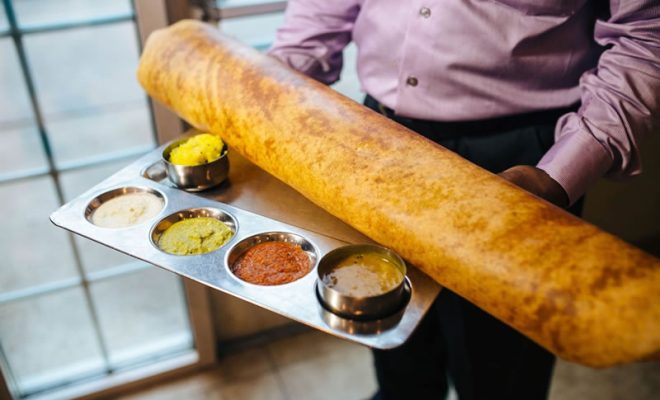Famous Indian Restaurants Violating Food Standards: A Shocking Reality

In the world of culinary delight, the importance of food safety and sanitation in restaurants cannot be embellished. Making sure that eateries maintain high standards of food quality and hygiene is important for public health. However, recent inspections have revealed a troubling trend among some of India’s most popular dining spots, exposing severe food safety violations that have shaken the trust of many loyal customers.
Popular Eating Joints Violating Food Safety Norms
Most of us love dining out but worry about the quality of food served? Social Media posts and news reports about raids across India have unveiled shocking lapses in food safety and hygiene standards at some very famous and beloved restaurants. Here are a few that have made headlines for all the wrong reasons:
Rameshwaram Cafe

Rameshwaram Cafe has long been an iconic South Indian eatery famous for its Ghee Podi and Garlic Roast Dosa . However, recently it has come under scrutiny for using expired and unlabeled food products. The cafe was also the site of a low intensity bomb blast, further complicating its reputation and raising serious concerns about hygiene and safety.
Sukhdev Dhaba, Murthal

The iconic destination for travelers traveling to Punjab and Himachal or even the Delhi residents craving for some parathes and white butter, Sukhdev Dhaba is one of the most popular eateries in the highway series. Despite its popularity, inspections revealed significant violations of hygiene norms and food safety. The Central Pollution Control Board (CPCB) found severe shortcomings in waste collection and sewage treatment, underscoring an urgent need for improved infrastructure to manage waste and maintain cleanliness.
Karachi Bakery

Known for its baked goods, Karachi Bakery was found to have a stock of expired food products like rusks, biscuits, candy, chocolates, cakes, toasts and buns. Most of the raw materials lacked proper labeling, violating Food Safety and Standards Authority of India (FSSAI) regulations, and casting a shadow over this iconic brand.
Sarvana Bhawan

With multiple outlets in India and Abroad, Sarvana Bhawan is the favorite spot for South Indian cuisine enthusiasts. Always surrounded by customers, Sarvana Bhawan’s CP outlet was in bad limelight when a customer discovered a dead lizard in a bowl of Sambaar. This incident shook the customer’s trust in the chain and highly affected its reputation.
Starbucks, India

Starbucks India was found using ingredients not approved by FSSAI in 2015. Although the company promised to replace these with FSSAI approved ingredients, this incident unveiled a lapse in adherence to local food safety regulations, which could have significant health implications for its patrons.
Also Read | Mahindra Thar Used in Attempted Murder of Noida Police Officers, 3-Arrested
The Seriousness of Food Safety Violations
A recent incident in Mumbai highlighted the importance of food safety. A doctor found a human finger in an ice cream cone his sister had ordered online. The police also confirmed the presence of human finger and launched a forensic investigation. Such shocking incidents highlight the serious consequences of neglecting food safety standards.
https://www.instagram.com/reel/C8JovKRy5KG/?igsh=NWVoMTV5NXgxdGpr
Food Safety Tips and Conclusion
Ensuring food safety is a shared responsibility between restaurants and customers. Here are some tips to help you dine safely:
Check Restaurant Ratings: Look for online reviews and hygiene ratings before visiting any restaurant.
Observe Cleanliness: Make sure to pay attention to the cleanliness of the dining area and the staff.
Inspect Food: Don’t hesitate to send it back or report it to the manager if something seems off about your food.
Stay Informed: Keep abreast of food safety news and avoid places with the history of violations.
Dining out is obviously a delightful experience, but it is also important to remain vigilant about food safety. The recent violation by popular Indian eateries serve as a strong reminder that we must prioritize health and hygiene to ensure our culinary adventures are both safe and enjoyable.



